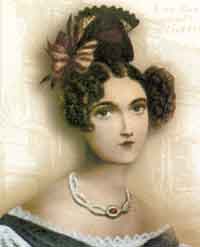Law
Discussion of Women’s Political Clubs—Amar
In a follow–up to Fabre d’Eglantine’s speech on 29 October, Jean–Baptiste Amar proposed an official decree on 3 October forbidding women to join together in political associations.
Discussion of Citizenship under the Proposed New Constitution (29 April 1793)
In the discussion of a new constitution in April 1793, Jean–Denis Lanjuinais spoke for the constitutional committee. He admitted that the question of women’s rights had aroused controversy.
Police Reports on Disturbances over Food Supplies (February 1793)
The reports of the Paris police provide firsthand information about conditions in the city and about the leading role of women in food disturbances.
A Deputation of Women Citizens Demands Action on Food Prices (24 February 1793)
In the rioting over prices of February 1793, women appealed first to the authorities, showing that they intended to communicate directly with their representatives in the municipal government of Paris.

Camila O'Gorman
The story of Camila O'Gorman (1828-1848), the daughter of a prominent merchant in the Buenos Aires community, is one of the most famous cases of a young person challenging both parental and state authority.

Epistolae: Medieval Women's Latin Letters
Epistolae presumes an already developed understanding among its readers of the medieval context in which these sources were generated.Etta Palm D’Aelders, "Discourse on the Injustice of the Laws in Favor of Men, at the Expense of Women" (30 December 1790)
Like many female activists, the Dutch woman Etta Palm D’Aelders did not explicitly articulate a program for equal political rights for women, though that would no doubt have been her ultimate aim.
Women's Petition to the National Assembly
This petition was addressed to the National Assembly sometime after the October 1789 march of women on Versailles.
Women Testify Concerning Their Participation in the October Days (1789)
The commission investigating the events of October 1789 also interrogated many women who had participated.
A Woman’s Cahier
This grievance was signed by a certain Madame B*** B*** whose identity is unknown. The provenance appears to be Normandy. Another version of this text, located and republished in the late nineteenth century, is signed by Marie, veuve de Vuigneras, also from Normandy.